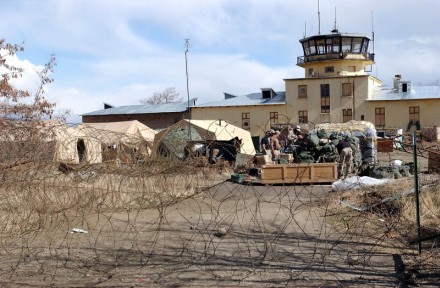By Jason Ditz

The Supreme Court ruled last year that detainees at Guantanamo Bay have the right to challenge their detention in court. But the government — first the Bush administration then the Obama administration — had argued that it did not apply to the detainees in Afghanistan because it is in an overseas war zone. (AP-Jun. 29, 2009)
In a ruling widely expected given the judge’s previous comments, US District Judge John Bates ruled that Haji Wazir, an Afghan citizen captured by the US in 2002 and held in detention at the Bagram internment facility in Afghanistan, has no legal right to challenge his detention in US courts.
In the seven years he’s been held in US custody Wazir, who is reportedly a businessman, has never been charged with any offense, and US officials have declined to even publicly say what he is being charged with. Bates ruled that if Wazir was able to challenge its detention, it could cause “friction” for the diplomatic relationship between the US and Afghan governments.
In April Bates had ruled that Bagram was materially the same as Guantanamo Bay and that detainees there did have a right to challenge their detention in US courts, despite objections from the Obama Adminisration. At the time Bates made it clear his ruling only applied to detainees who weren’t born inside Afghanistan and didn’t hold Afghan citizenship.
Though Bates admitted at the time that stripping all legal rights from a detainee based on his residency status was “odd,” he insisted that the ruling was necessary given the nature of US ties with the Afghan government it was perfectly constitutional to detain him indefinitely without due process.



